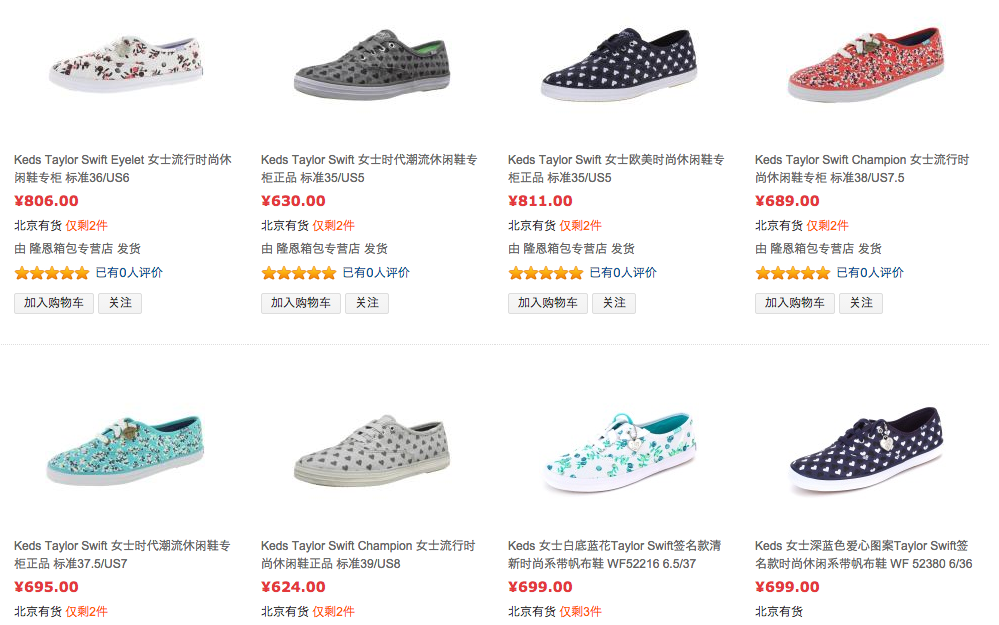Taylor Swift Fighting Counterfeit Products By Partnering With Chinese Companies To Sell $60 Branded T-Shirts
Of course, brands should be able to set their own prices and expect anyone who wants that official product to pay accordingly. But Swift’s new plan to partner with two Chinese companies to sell branded merchandise — including those $60 T-shirts, as well as a line of women’s clothing priced between $100 and $120 per item — could very well drive customers straight into the arms of cheaper, albeit illegal counterfeit competitors.
The Wall Street Journal reports that Swift is launching her own branded clothing line with JD.com and Alibaba in China, two major e-commerce companies, in an effort to get them to stop selling pirated or counterfeit products. China has seen an explosion of fake Swift products as the pop star has gained popularity.
Beginning Aug. 8, JD.com and Alibaba’s Tmall marketplace will carry the branded $60 designer T-shirts, followed by a women’s collection on JD.com in September, with prices upwards of $100. Products will bear antipiracy tags proclaiming them as the real thing, allowing customers to track their authenticity on the web.
Kate Liegey, chief operating officer of Heritage66, a Nashville-based branding company that’s representing Swift’s line and bringing it to China, says she’s been working with the two companies to remove unauthorized goods from their sites.
“It’s time for Chinese companies to say, ‘We don’t want to be known for piracy anymore,’” she said.
She added that she believes Chinese consumers will pay $100-$120 for a Taylor Swift dress. Meanwhile, over on Taobao, an Alibaba marketplace, shoppers can snag fake Taylor Swift Keds sneakers for around $11, and Taylor Swift watches and cell phone cases for $10 or so.
It’ll be a hard battle for Swift in China, where there are nine trademarks registered under “Taylor Swift,” three of which are not actually owned by Swift herself, for things like purses, baby onesies, bathing suits, shoes and hats.
Despite the fact that she’s a celebrity, trademark law in China is based on who files first, Benjamin Bai, a partner in the Shanghai office of law firm Allen & Overy, LLP explained to the WSJ. Therefore, if Swift wants to sell swimsuits under her brand, she’d technically be infringing on someone else’s trademark.
“So even though you may be internationally famous if I’m the owner of your name in China you can’t get me,” Bai explains.
Heritage66 says Swift is currently working with lawyers in an effort to recoup trademarks using her name.
Taylor Swift Counters Knockoffs in China [Wall Street Journal]
Want more consumer news? Visit our parent organization, Consumer Reports, for the latest on scams, recalls, and other consumer issues.



